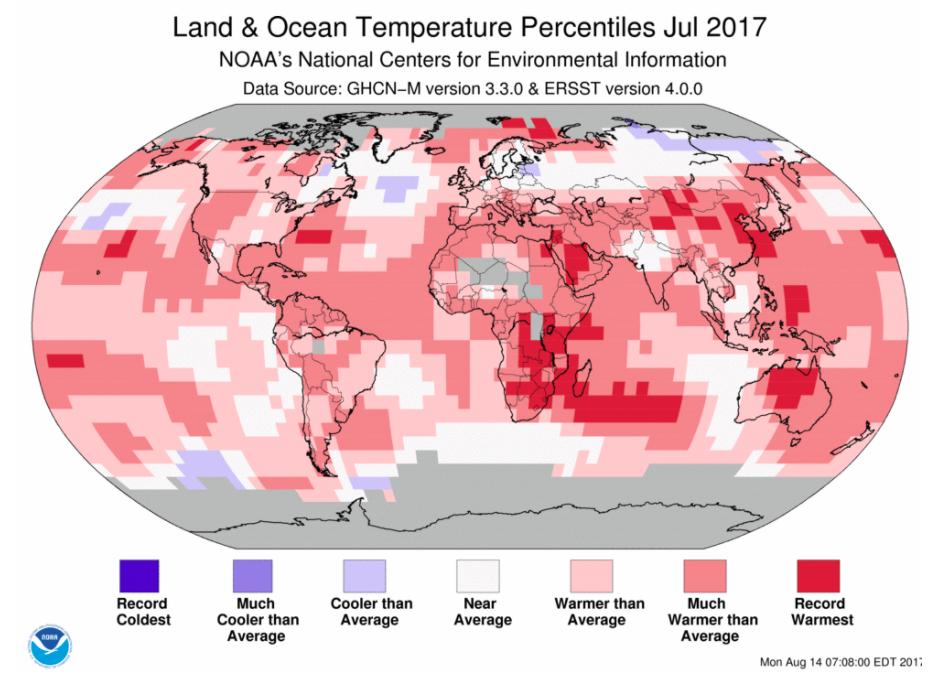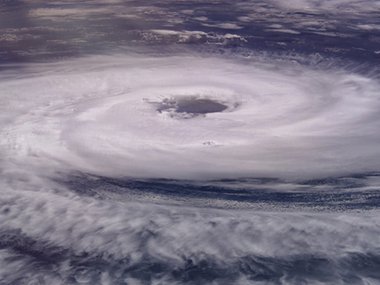Question Your World: Why Have Recent Hurricanes Been So Strong?
This year’s hurricane season has been quite intense, to say the least! Hurricane season is not even over and we've already seen some big storms that have broken records, one after the other. Why have these recent hurricanes been so strong?
Hurricane Harvey, the first major hurricane to hit the US mainland in over a decade, was followed quickly by other major hurricanes – Irma, Jose, and Maria – all of which had historically strong winds and devastating rain totals. These storms have been all over the news as they have impacted millions of people and resulted in hundreds of billions of dollars’ worth of damage.
What made these storms so unique? Some meteorologists have focused on the fact that these storms all underwent “rapid intensification” – meaning they got a lot stronger in a very, very short amount of time, even for major hurricanes. Scientists say a storm has undergone “rapid intensification” when its sustained wind speeds increase by at least 35 mph (or 30 knots) over a 24-hour period.
The obvious next question here is why do these hurricanes strengthen so quickly? Well, there are a few factors to consider. Part of this has to do with the natural world doing its usual thing, but there's concern that we're starting to load the dice and make these intense weather events more likely.
First of all, a lot of this has to do with the ocean itself. A really warm ocean to a hurricane is like an extremely dry forest to a wildfire. When the area of the ocean where hurricanes form is warmer than normal and that warm water extends sufficiently deep down into the ocean, it encourages rapid intensification because there is a lot of potential energy in the warm water.

Also, winds high up in the atmosphere need to be relatively calm so as not to tear the hurricane apart. This particular atmospheric condition is one reason hurricanes form during the fall here in the Northern Hemisphere.
Finally, it needs to be the “perfect storm,” with an internal structure that allows it to efficiently use all of the warm ocean energy underneath it. As it turns out, scientists have linked major hurricanes with these variables, stating that about 80% of strong storms become that way because of rapid intensification.
How might humans be “loading the dice” for these stronger hurricanes, though? Scientists around the world agree that human emissions of heat trapping gases are already impacting our climate, including warming our oceans – thus making at least one condition for rapidly intensifying hurricanes more common. Global ocean temperatures have been warming up as our growing population's needs have required more and more use of fossil fuels for production, transportation, and beyond.
Experts around the world have also indicated that using alternative energy forms would put fewer heat trapping gases into the atmosphere. Solar and wind powered options, among others, have been presented as environmentally friendlier ways to help meet our population's growing needs. Encouraging the use of alternative energy options would be a great way for future generations to have access to power without further jeopardizing our atmosphere and ocean.
In the meantime, we're still not done with the 2017 hurricane season. Plus there will be more storms in the future that could be a great risk to islands and coastal areas. Extreme weather events could impact mainland areas as well. Just another reason that scientists are encouraging us to be prepared for and resilient to these storms now and into the future. Check out the Virginia Department of Emergency Management’s website for more information on how to be ready in the event of a hurricane, and watch our video about hurricanes here!


